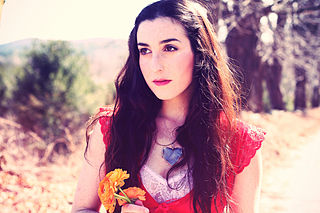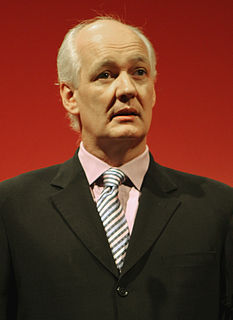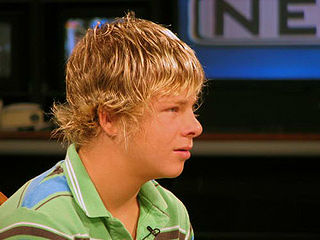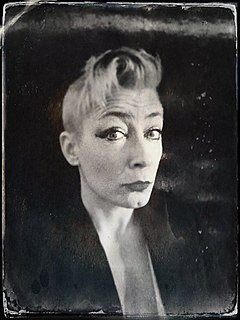A Quote by Molly Antopol
There are certain writers I can't read when I'm trying to write because their voices are so distinct. Cormac McCarthy, he's the most different writer from anything I've ever written, but there's something about those really spare sentences that is just tough - it would be too much of an influence. Grace Paley is my favorite writer. Her stuff is so voice-driven, when I read her a lot I want to make my writing more voice-y and dialogue-heavy. I love a lot of stuff in translation.
Quote Topics
About
Anything
Because
Certain
Dialogue
Different
Distinct
Driven
Ever
Favorite
Grace
Heavy
Her
Influence
Just
Lot
Love
Make
McCarthy
More
Most
Much
My Favorite
Read
Really
Sentences
Something
Spare
Stuff
Those
Too
Too Much
Tough
Translation
Trying
Voice
Voices
Want
Would
Would Be
Write
Writer
Writers
Writing
Written
Related Quotes
It's not possible to advise a young writer because every young writer is so different. You might say, "Read," but a writer can read too much and be paralyzed. Or, "Don't read, don't think, just write," and the result could be a mountain of drivel. If you're going to be a writer you'll probably take a lot of wrong turns and then one day just end up writing something you have to write, then getting it better and better just because you want it to be better, and even when you get old and think, "There must be something else people do," you won't be able to quit.
For me writing is a long, hard, painful process, but it is addictive, a pleasure that I seek out actively. My advice to young writers is this: Read a lot. Read to find out what past writers have done. Then write about what you know. Write about your school, your class, about your teachers, your family. That's what I did. Each writer must find his or her own kind of voice. Finally, you have to keep on writing.
I do find it easy to write songs about heartbreak; it comes really naturally to me. It was a little bit more difficult for me to break my mould and tackle different subjects. You know what it's like because you're a writer. You don't want to tread on the same territory. Writing about the personal stuff was a little difficult because I'd worry about who would read it and who would be offended by it.
Read a lot. But read as a writer, to see how other writers are doing it. And make your knowledge of literature in English as deep and broad as you can. In workshops, writers are often told to read what is being written now, but if that is all you read, you are limiting yourself. You need to get a good overall sense of English literary history, so you can write out of that knowledge.
Just write. If you have to make a choice, if you say, 'Oh well, I'm going to put the writing away until my children are grown,' then you don't really want to be a writer. If you want to be a writer, you do your writing... If you don't do it, you probably don't want to be a writer, you just want to have written and be famous—which is very different.
Like Hemingway and Faulkner, but in an entirely different mode, Fitzgerald had that singular quality without which a writer is not really a writer at all, and that is a voice, a distinct and identifiable voice. This is really not the same thing as a style; a style can be emulated, a voice cannot, and the witty, rueful, elegaic voice gives his work its bright authenticity.
Writers are great lovers. They fall in love with other writers. That's how they learn to write. They take on a writer, read everything by him or her, read it over again until they understand how the writer moves, pauses, and sees. That's what being a lover is: stepping out of yourself, stepping into someone else's skin.
Brooke Berman's voice is utterly distinct, and her book, detailing her nomadic artist's journey toward both a successful playwriting career and a home of her own, through 20 years of cramped sublets, high-rise palaces, writer's colonies, and boyfriend's vans, is a hilarious, hopeful, and penetrating must-read.
The notion of the writer as a kind of sociological sample of a community is ludicrous. Even worse is the notion that writers should provide an example of how to live. Virginia Woolf ended her life by putting a rock in her sweater one day and walking into a lake. She is not a model of how I want to live my life. On the other hand, the bravery of her syntax, of her sentences, written during her deepest depression, is a kind of example for me. But I do not want to become Virginia Woolf. That is not why I read her.
I've learned a lot about language from reading slush. You can immediately tell if a writer is in control of the narrative. This writer will avoid using too many words like "possibly," "probably," "maybe," "perhaps," etc. He/she will avoid using clichés, as well as a lot of metaphors, and won't take four sentences to say what they could in one (or write a great sentence and follow it up with a bunch of stuff that just weakens it).





































